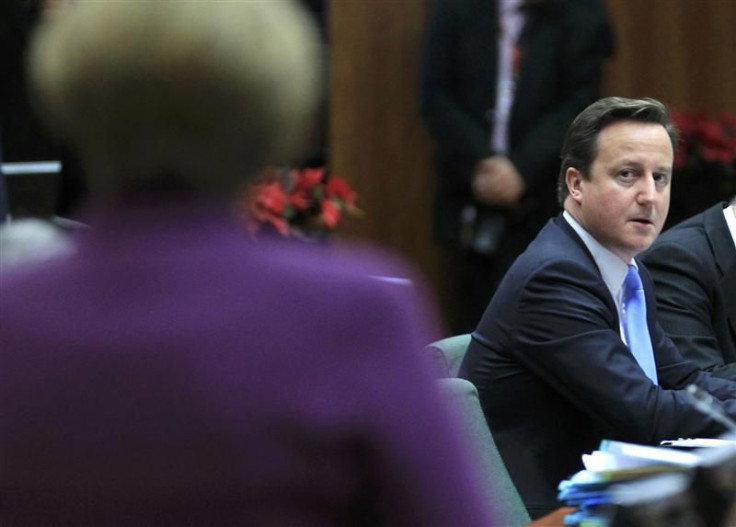UK Leaving The EU? Britain, Germany Battle Over Migrant Workers, 'National Interest'

British Chancellor George Osborne said that despite opposition from German Chancellor Angela Merkel, the United Kingdom will continue to pursue its "national interest" by pushing for restrictions on movement by migrant workers from other European Union member states, the BBC reported Monday. Merkel insisted she will do everything in her power in order to ensure that the right to movement within the EU remains intact. She warned British Prime Minister David Cameron that by pushing its restrictive policy proposals, the U.K. is nearing a "point of no return," and stated that she would prefer to see the U.K. leave the EU rather than infringe on European workers' freedom of movement, German magazine Der Spiegel reported, according to the Daily Mail.
The warning appears to have weakened Cameron's resolve in the push for tough migrant worker quotas, as senior advisers say he was pursuing a more "German-compliant" relationship with Brussels, the Sunday Times of London reported Sunday. Cameron seeks to negotiate with the greater EU over the terms of British membership before deciding whether to hold a referendum on leaving the body, the BBC reported. Cameron is believed to be considering a proposal to force EU migrants to the U.K. to leave the country after three months if they do not secure gainful employment, the Daily Mail reported.
Concern about the rapid influx of immigrants has become a hot-button issue in the U.K. recent years. Earlier this year, a poll showed that one-third of respondents considered immigration to be the biggest issue facing British society, and half considered it to be one of the three most pressing issues. Net migration to the U.K. in the year ending March 2014 was about 243,000 people, about 131,000 of which were migrants from elsewhere in the EU, according to Migration Watch UK.
© Copyright IBTimes 2025. All rights reserved.





















